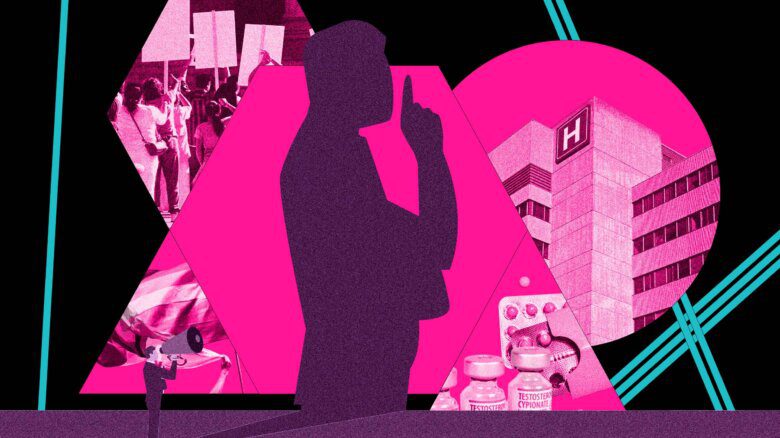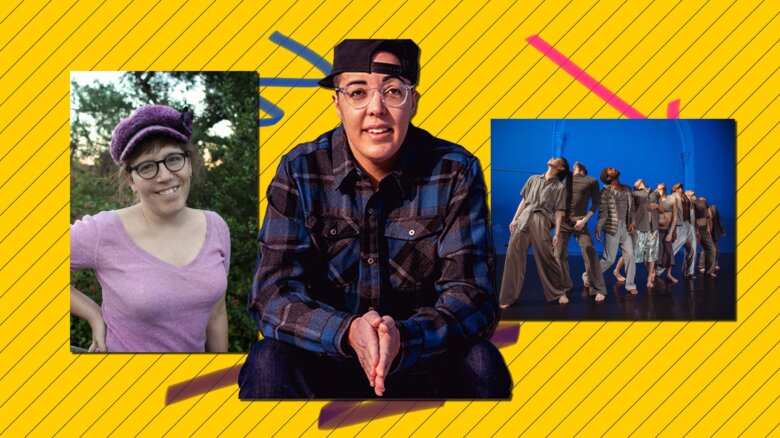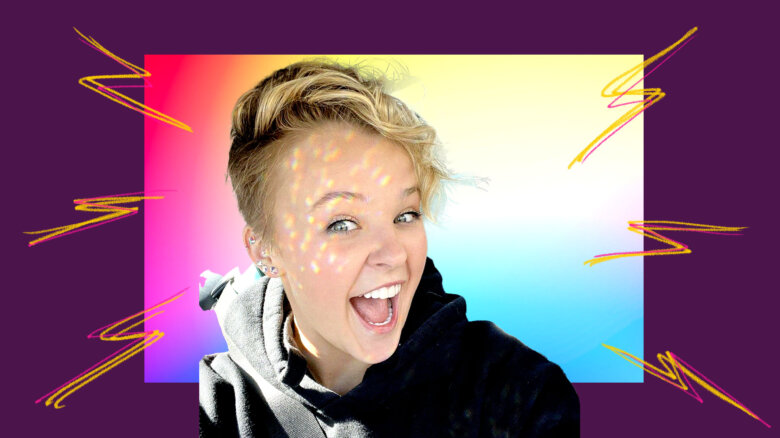“Ask Kai: Advice for the Apocalypse” is a column by Kai Cheng Thom to help you survive and thrive in a challenging world. Have a question? Email askkai@xtramagazine.com.
Hi Kai,
I recently moved into equity and diversity work after many years of being more of an activist in my community. (Sold out? Maybe, but a girl needs to pay rent.) The experience has taught me a lot, especially about how it’s easy to hold moral purity and righteous anger as an activist, but harder as someone making imperfect progress.
You see, some local activists seem determined to drag me. These are people who I once dreamed of calling peers. Now, I flinch when I see them on social media or occasionally in my inbox, as they use intimidation to be the sole holders of the moral compass.
I am feeling ready to place some firmer boundaries with these folks, but am not sure how to go about it. I’m afraid of taking them off my personal social media, as I’m sure that it will have professional repercussions; I’m afraid of pushing back against their demands for my time and attention because I’m afraid it will sour relationships with the community. Overall, I’m tired of being held accountable to the imperfect actions of my organization where I have no real power, and I’m tired of working for a community that hurts me.
Sincerely,
Socially Excluded Lonely Lesbian, Over Unilateral Thinking
Dear SELLOUT,
First of all, congratulations on taking steps toward greater financial security and firmer boundaries. While I don’t know your specific situation, I’ve come to believe, over the past 10 years, that the only activism I want to be a part of is activism that sustains our own lives and livelihoods while also pushing for positive social change.
As Audre Lorde once said, self care is a revolutionary act. Of course, that doesn’t mean that we can justify complacency or wealth hoarding under the banner of “self care,” but I’m pretty sure that equity and diversity work doesn’t fall into those categories. You deserve to make a living, SELLOUT. And we all deserve to be treated with dignity and respect—no matter what.
Without more details of what these calls for “accountability” are about, it’s difficult to comment on the conflict you describe. But I can speak to some of the dynamics I’m observing as a professional conflict resolution practitioner in my own queer and activist communities. Which is to say: It’s a challenging time in the non-profit and equity and diversity sectors.
“For many years, the deep wounds caused by slavery, genocide, racism and other historic atrocities have been minimized and denied, even in traditionally ‘progressive’ fields.”
As a result of the pandemic and recent social uprisings, many systemic imperfections of those fields are being put under a microscope—often with good reason. For far too long, non-profits and traditional equity and diversity organizations have been both inadequate and complicit when it comes to racism and oppression.
For many years, the deep wounds caused by slavery, genocide, racism and other historic atrocities have been minimized and denied, even in traditionally “progressive” fields. Now, as the dominant culture starts to awaken to these collective traumas, conflict is erupting everywhere in both generative and destructive ways. This is perhaps especially true in organizations and communities that have a mission to do “good,” or social change work, because when they fail, the disappointment and betrayal felt by marginalized individuals is intense. Social media amplifies this pattern, creating an atmosphere in which our natural aversion to conflict is paired with our fear of “cancellation,” that is, public humiliation and social death.
So where do you fit into this big picture of societal change, collective trauma and social media, SELLOUT? Well, I think it can be helpful to remember that we are all individuals caught up in the swirling sea of collective social trauma. Whether or not it’s fair, the waves can come crashing down on us, forcing us to learn (very, very quickly!) how to swim through the storm of conflict. Like swimming, navigating conflict in its many forms is a skill that we can learn. And while being a strong swimmer doesn’t change the intensity of the waves, it does mean that we are more likely to come through to the other side.
“Like swimming, navigating conflict in its many forms is a skill that we can learn.”
What does it mean to swim through conflict? I believe that the most important skill for interpersonal conflict is being able to balance apparently contradictory concepts and perspectives in one’s mind and body: Compassion for the other, compassion for ourselves; staying open to change and taking accountability; holding strong boundaries and protecting ourselves.
Like Goldilocks, our challenge lies in finding what’s “just right.” We run into problems when we get stuck in a particular conflict “mode.”For example, always trying to please and appease by agreeing with and giving in to whatever the other person is saying, or always aggressively defending oneself without any regard for the other’s feelings.
In your case, SELLOUT, finding “just right” could mean any number of things, but I suspect it includes finding a way to honour your own needs and boundaries while staying true to the ideals you share with your community. How can you set limits on how you engage with activists while maintaining a relationship with the broader community (and, hopefully, minimizing damage to your professional and personal life)?
You might spend some time with this question, brainstorming and writing down ideas perhaps with the input of someone you trust. It’s totally okay to bring in trusted friends, or perhaps even a professional mediator or conflict coach.
One key aspect of de-escalating conflict is acknowledging the other party’s grievance. Even if we can’t take responsibility for it or change it, we can demonstrate and model fundamental respect by showing compassion, which can be done both publicly and privately. Taking responsibility for any mistakes you might have made is also an important sign of goodwill.
“One key aspect of de-escalating conflict is acknowledging the other party’s grievance.”
At the same, it’s very important to remember that we should not take responsibility for things that we aren’t responsible for (sometimes people are tempted to do this because they hope it will get them “out of trouble,” which can have many negative consequences).
In her book Care Work: Dreaming Disability Justice, activist and author Leah Lakshmi Piepzna-Samarinsa discusses a phenomenon she calls “femme hyperaccountability,” wherein femmes often take the brunt of the community’s dissatisfaction and are expected to tend to everyone’s needs. When femmes fail to do so, they are punished or made the scapegoat. While I don’t know if you identify as femme, SELLOUT, I wonder if the general concept of “hyperaccountability” might resonate with you.
Developing and setting clear boundaries is an essential aspect of conflict management and breaking the cycle of hyperaccountability. Setting boundaries is, to be frank, quite scary for many people, because the dominant culture usually punishes us (especially marginalized people) for our boundaries. Yet being clear about how we will and will not engage in conflict can be an enormous gift to both ourselves and to the other party, because it creates a strong container and makes us all safer.
“Developing and setting clear boundaries is an essential aspect of conflict management and breaking the cycle of hyperaccountability.”
What boundaries do you need to have in place, SELLOUT? Perhaps you are simply not willing to receive any more contact from these folks who have been dragging you—you can use social media “block” or “mute” functions to enforce these boundaries. Or perhaps you are willing to remain in contact, but you need to hear an acknowledgement from the other party that you and your perspectives are also worthy of basic respect. Or perhaps you need a professional mediator to help facilitate a safe discussion. It may be important to remember as well that if you are being held “accountable” for the actions of an organization, then it may be most appropriate to get the organization involved—at the very least, for them to pay for a professional mediation service.
Whatever the case, you are allowed to ask for what you need, SELLOUT. And if the response to hearing your needs is an attack or denigration, then you will know that these other folks are not necessarily operating in good faith (which I often interpret as bullying).
When the other parties in a situation of conflict are unable or unwilling to meet your basic needs for safety and respect, you are within your rights to disengage (and the same would be true for them if you were unable or unwilling to meet their basic safety needs). A common bullying and abuse tactic is to try and make us too afraid to disengage by threatening to take away our access to life needs and to community (which is arguably also a life need).
This, in my view, isn’t acceptable behaviour, nor is it compatible with the ethic of transformative justice—justice based on non-punishment, social change and prison abolition, that so many queer and activist communities hold dear. Unfortunately, in the throes of pain, collective trauma and social upheaval, it is all too easy to lose sight of our ideals. I think this is why conflict in social justice communities so often operates along the lines of punishment and revenge—sometimes even when we try our hardest to practice de-escalation and peaceful resolution.
“Unfortunately, in the throes of pain, collective trauma and social upheaval, it is all too easy to lose sight of our ideals.”
When we have tried our hardest to repair conflict but the other party is not ready for peace, we must let go of the idea that we can control their emotions or behaviours. We can only offer them our best selves and invite their best selves to the table. We can also protect ourselves by reaching out to the people we trust so that they can hold our side of the story and give us emotional support.
The threat of being “cancelled” is often real and frightening, particularly for those of us whose livelihoods are tied to our reputation within communities. Yet we can often mitigate this threat by refusing to give in to it, by being honest and taking accountability up front when we’ve done wrong and by being clear about our boundaries in a kind and compassionate way.
When we model appropriate, compassionate and accountable behaviour, it can show our communities who we really are. And while some people may continue to act in intimidating or even harassing ways, it’s important to know that giving in to intimidation rarely stops it from happening. Instead, we can strive to build connections and partnerships based explicitly on consent, generative conflict and mutual trust.
In my own life, I have discovered a growing network of queer and activist folks who are actively choosing to resist call-out culture and looking for more nuance. You might be surprised, SELLOUT, at how just how many people are ready to let go of toxic conflict culture when offered the opportunity.
Swimming through the storm of conflict is never easy. When we are in the midst of swirling waters, it can feel impossible to imagine the shore. It is often tempting to rage at the waves or give in to the undertow. Yet neither of those strategies can get us out of the storm, SELLOUT. Only swimming does—carrying on an unrelenting commitment to our own dignity and to the dignity of others without relinquishing either. Don’t give up, SELLOUT. Solid ground might be closer than you know.
Want more Kai? Check out her latest Quick Tips video, where Kai digs even deeper into building healthy boundaries.
Kai Cheng Thom is no longer a registered or practicing mental health professional. The opinions expressed in this column are not intended or implied to be a substitute for professional medical advice, diagnosis or treatment. All content in this column, including, but not limited to, all text, graphics, videos and images, is for general information purposes only. This column, its author, Xtra (including its parent and affiliated companies, as well as their directors, officers, employees, successors and assigns) and any guest authors are not responsible for the accuracy of the information contained in this column or the outcome of following any information provided directly or indirectly from it.


 Why you can trust Xtra
Why you can trust Xtra


